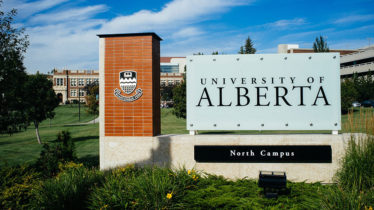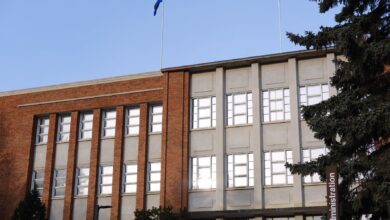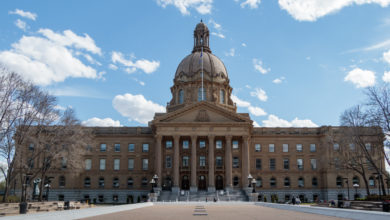Alberta government approves market modifier proposals, leaves students “incredibly frustrated”
 Abby Schenk
Abby SchenkThe province-wide wait for decisions regarding market modifiers — or tuition increases — is finally over.
The Ministry of Innovation and Advanced Education announced that they approved 25 of 26 market modifier proposals on Monday, Dec. 22. The lone rejected application was due to not meeting criteria.
University of Alberta programs affected by the decision are the JD program in the Faculty of Law, the MBA program in the Faculty of Business, the bachelor of science program in the Faculty of Pharmacy, the masters of science in physical therapy program in the Faculty of Rehabilitation Medicine and the bachelor of economics in the Faculty of Arts.
Alberta post-secondary institutions were instructed to submit three proposals to the government for approval by Oct. 15, but then U of A Provost, Carl Amrhein, submitted five.
Students’ Union Vice-President (External) Navneet Khinda said she wasn’t expecting everything to be “perfectly fine,” but is “incredibly frustrated” and by the government’s decision to approve all five proposals.
“I think the current PC government has restricted accessibility even more,” Khinda said. “They’re reducing affordability for students … I’m expecting budget cuts coming as well, so this is not a good combination.”
After months of lobbying against tuition hikes, Khinda said she’s disappointed at how little student advocacy affected the government. She advised students to “brace themselves” for “increasing costs and further reduction in quality.”
Dean of the Faculty of Law Paul Paton maintains that student accessibility is “extremely important” and was a priority in his proposal. Paton said it was integral that 20 per cent of the additional revenue generated would go back into scholarships and bursaries for the program.
“I am very pleased for our students that the government heard them loud and clear,” Paton said. “Ensuring quality and excellence was important and the government was prepared to make the necessary investment.”
The market modifier increases will bring in a projected $21 million in additional revenue to Campus Alberta institutions.
“Market modifier increases address tuition anomalies between programs in Alberta and across the country,” Alberta Minister of Innovation and Advanced Education Don Scott said in the news release. “These tuition increases allow institutions to enhance quality and make these specific programs more responsive to student needs.
“Our goal is to have the best post-secondary education in the country.”
U of A Acting Provost and Vice-President Academic Olive Yonge said she’s “thrilled” that the government granted institutions the ability to use and approve the market modifier process. The added funding will be used for student support and enhanced teaching resources, she said.
The news of the approvals were done so in a “timely manner,” especially with planning and budgeting for the upcoming academic year and unknown status of the 2015 base government grant increase, Yonge added.
“Going forward, there are most likely going to be budget challenges,” she said. “Having these new numbers will help us. It’s so nice that they’re respectful of our needs to do our planning.”
The Faculty of Law’s tuition will increase by about $2,000 per academic year, starting in 2015–16. Current tuition for the U of A’s law school sits at $10,121, and will now be bumped up to $15,995 per year in 2017–18, a 56 per cent increase.
Tuition for the MBA program will increase by $11,500 starting in 2015–16, spiking it from $24,439.20 to $34,712.24 by 2017–18, an hike of 42 per cent.
The Faculty of Pharmacy applied for an increase of $1,400, raising tuition from $9,987 to $11,387 per year, effective 2017–18, an increase of 14 per cent.
The MScPT program in the Faculty of Rehabilitation and Medicine will see an increase of $1,482.24, bringing the cost of the program to $19,971.84 by 2016–17, an 8 per cent increase.
The Department of Economics market modifier is modeled at an increase of $150 per course for domestic students, and an increase of $554 per course for international students. This would bring current tuition of $5320.80 to $5,770.80 per year by 2018–19, an increase of 8 per cent.




